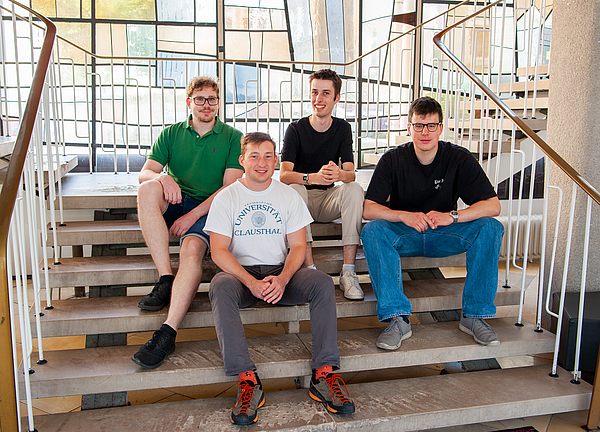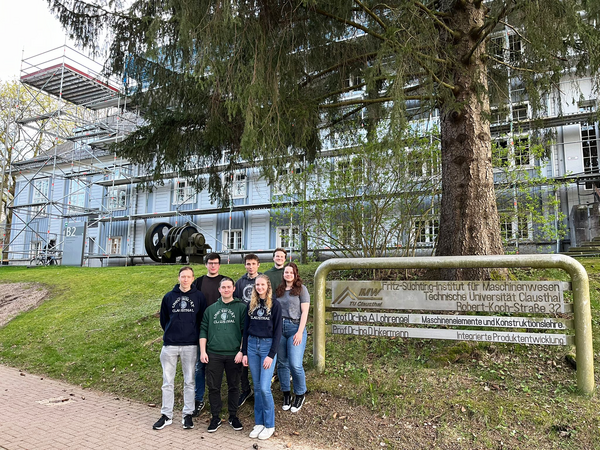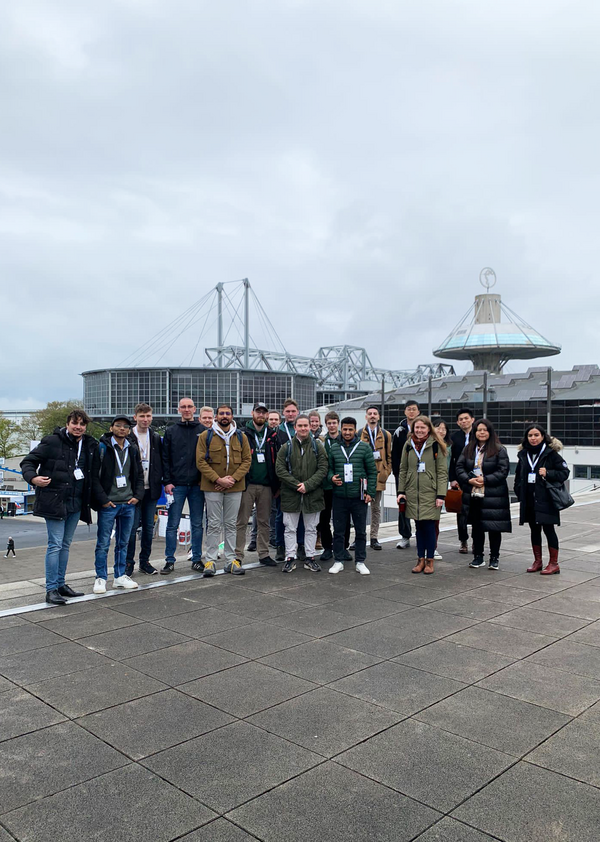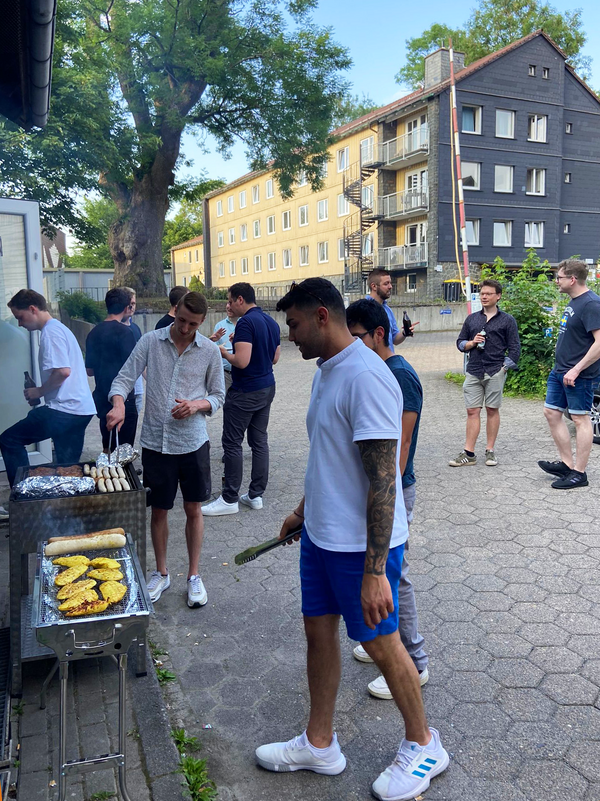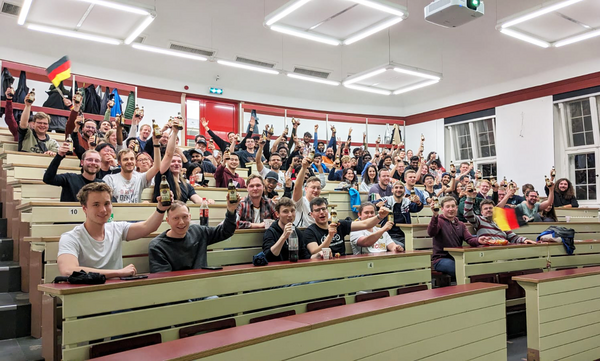Representatives, problem solvers, party planners
They stand up for your interests and are often the first point of contact for questions and problems in everyday university life: the five student councils (FSR) at Clausthal University of Technology. Their members are students themselves, are directly elected by you and help shape life at the university on a voluntary basis. However, it is not always easy to find volunteers for FSR work.
I met with the student councils and wanted to know what tasks they perform and why they are committed to you. My interview partners were Paul Steingröver (Student Council for Earth, Energy and Resource Sciences - GER), Timon Herzel (Student Council for Mechanical, Process and Chemical Engineering - MVC), Julius Röhr (Student Council for Physics, Materials Science and Chemistry - PMC) and René Rückbeil (Student Council for Economics - WiWi). Unfortunately, no one from the Student Council for Mathematics and Computer Science was able to take part in the interview due to scheduling issues.
A few basic questions to start with: What is a student council?
Paul: A student council consists of seven elected students from a student body. The student body itself consists of degree courses that are organized thematically. Once a university year, the students elect the student council, which then presides over the student body.
When do the elections take place?
Timon: At the same time as the university elections in January, the elections are organized by the students.
How long does a term of office last?
René: It always lasts exactly one financial year, i.e. you are elected in January, find out the result in February and are normally constituted in April in the first or second week of lectures. You are then responsible until the following April and the handover to the next deputy.
Timon: Officially, the financial year runs from April 1 to March 31.
Are there fixed offices in the FSR?
Paul: There are three fixed positions on the board, the two chairpersons and the financial officer.
Timon: Then there is the FZR connector. The FZR is the central student council. Each student body sends one person to the FZR, where the student councils then coordinate their activities.
René: There is also a second representative for this. If the FZR representative is unable to attend, this person stands in so that the information from the FZR is still passed on to the FSR.
A few councils have problems getting enough people to stand for election. What happens if an FSR cannot be fully staffed?
René: As long as there are four of us, there will be an FSR. If there are fewer, then there is no money from the student self-administration for the student body and then we have no offer.
Timon: With fewer than seven people, it's obviously more work for everyone. It would actually be good if there were more than seven of us. Theoretically, you can always join, you just don't have the right to vote.
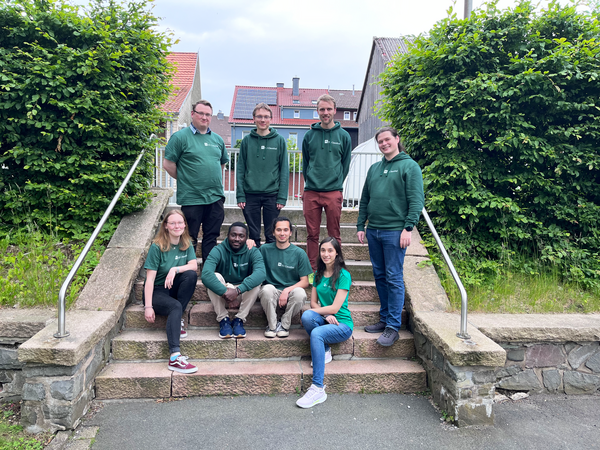

What are your tasks?
Timon: That depends on which position you take on. Paul is the financial officer, the two of us (editor's note: refers to René) are the first or second chairperson. Other members are not on the board, but take on additional tasks, because some student councils offer extra services. What we all do is meet at least once a month during the lecture period.
What services do you offer?
Julius: The PMC offers Sehschlangen (editor's note: memory logs of exams). We also organize a big chemistry party once a year. Furthermore, we offer individual help if there are discrepancies with study plans, for example. We provide advice and pass it on accordingly.
René: Unfortunately, the WiWi student council can't offer any services at the moment. Our problem is that we need more people to get involved. We try to get lots of people to do this, for example at our general assemblies, which we hold once every semester.
Timon: At the MVC, students can come to the regular meetings that are open to the university public and make comments, ask questions or express criticism. Our unique selling point is the drawing board rental service for technical drawing.
In addition, every student council holds a general assembly. We try to offer something, an industry presentation for example. Sometimes there's a Christmas party or a first-year welcome event. We always organize parties as a student council and we go on an excursion to the Hannover Messe every year, but it's not as well attended as it used to be.
Paul: The MVC and the GER also offer joint excursions. We always try to find companies with significance and from the surrounding area that fully support such a day excursion so that you can get out of the lecture hall.
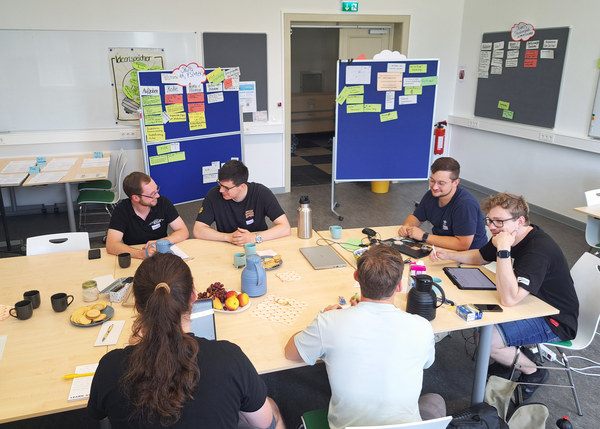
You do all of this on a voluntary basis. Why is the FSR work worthwhile for you personally?
Paul: I've met some really cool people. Because I started during Corona, it really helped. When you join the student council, you're the new kid on the block, but now we're really good friends. That's a personal benefit.
Julius: It's also the experience that you gain and the skills that you learn along the way. How do I communicate properly, how do I solve things diplomatically, how do I structure myself, how do I organize a meeting, how do I speak in front of people? These are also personal added values. I also think that social commitment is important and is something that balances me out and makes me happy.
Despite these advantages, there are not always volunteers for FSR work. Why could that be?
René: Well, one problem for us is that we can't reach many foreign students who come from countries where democracy doesn't necessarily prevail. They don't even know what they can express with their vote, what power they have as students to help shape the university. The commitment of the Germans is the same as you see it everywhere. All associations have problems, humanity is perhaps becoming a little more selfish. I think the main problem is that students don't realize what they can achieve when they come to us. And because they don't, they don't see any benefit.
Julius: Of course, student council work is also a commitment and requires time. There are additional appointments and our university is not known for having a lot of free time. Especially when people are ambitious to do it in the standard period of study. In the first semesters you have other problems and it takes time to get to a position where you can see the added value. We could perhaps communicate this better. There is also a high turnover of students and you have a relatively short time to develop an interest and get involved before your time at the university is over again.
Paul: Perhaps it also depends on how you were socialized at school. If you've already done committee work or been involved in any clubs, then you know what commitment means. And it could be that this was simply missing during the pandemic. But that's just a guess.
Why did you decide to join your student councils?
Julius: It turned out that some people were going and then I thought about whether I had the time. As I said, I like getting involved, it's always nice to be part of a community and I think student self-administration and commitment are important. You can't always just get upset about what's not going well if you don't stand up and at least try to change something. You owe it to yourself somehow.
Timon: A friend who was in the student council asked if I wanted to join. Then I thought it was really cool and stayed for a few more years.
Paul: I was upset about the concept of a block course. I wrote an email about it, presented it in person to the student council and then just stayed because I thought the people were cool. At the next election, I was on the list.
René: I've already been involved in quite a few things here at the university. For example, I was in the Green Voltage Racing Team (editor's note: the student team developed an electric racing car). We had to dissolve the team because we didn't get any credit points and it was a lot of work on the side. As a result, I had a bit of a chip on my shoulder about the university and the administration. At some point I heard that we didn't have a student council and I put my name on the electoral list. That was also based on the premise that if I didn't do that now, then our student council wouldn't exist for the second year in a row.
Now it's important that this student council becomes stable again and that we have people who are committed. Then we can slowly build up an offer again.
How much time do you think FSR work takes up?
Timon: To be honest, student council isn't that much work. If we break it down: We have to hold a meeting every month during the lecture period. Of course, preparing the meeting is a bit of work for the chairperson, an hour at most, and the meeting lasts one to three hours. But of course you also sit together and have a few drinks. I don't know if I would count that as work, if I did I wouldn't necessarily be on the student council. Let's say it's an hour a week on average during the semester, maybe a bit more. And you can manage that really well.
Julius: That's the advantage when there are a lot of people. If someone says they don't have time during the regular semester, then someone else can step in. And compared to other voluntary work that I do on the side, it's something that's quite manageable in terms of effort.
If students would like to join: What is the best way to reach you?
Paul: Come to the meetings!
Timon: All student bodies are invited to the meetings by the respective student council via e-mail. And otherwise always contact us by e-mail, there is a mailing list for each student council.
Your final appeal: Why should students get involved in the student council?
Timon: It has already been summarized well: If you want to get socially involved and meet new people.
René: If you want to improve the study conditions as far as possible from the student side. We can make life easier for our students if they approach us.
Paul: If you want to find out what else university means. University is not just about learning, it has much bigger dimensions and that is perhaps the first step towards understanding the whole system.
Contact your student councils:
Student Council for Earth, Energy and Resource Sciences
fs-ger@tu-clausthal.de
Student Council for Mechanical, Process and Chemical Engineering
fsmvc@tu-clausthal.de
Student Council for Mathematics and Computer Science
fs-mi@tu-clausthal.de
Student Council for Physics, Materials Science and Chemistry
fspmc@tu-clausthal.de
Student Council for Economics
fs-wiwi@tu-clausthal.de
The student councils are always happy to welcome new faces! You don't have to have been elected to join - you can join at any time.
You should keep an eye on your mailboxes and social media for information about your student councils: Meeting invitations and news will be sent by email, via Stud.IP or Instagram.



